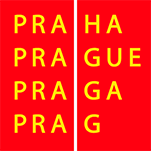In recent months, a new project has been launched in Prague, which aims to make the renting of city flats more efficient and transparent. The electronic auctions, which are already being successfully used in several Prague city districts, bring transparency and a modern approach to a process that was previously often criticised for being non-transparent.
How does an electronic auction work?
Electronic auctions are organised through online platforms where those interested in renting a city apartment can submit their bids. These platforms are, for example, www.portalaukci.cz or systems specifically designed for municipalities. The process starts with the publication of the bid, which includes information about the apartment, such as its size, location, technical condition and minimum starting rent.
Those interested in renting must meet predefined conditions, such as proof of debt-free status or financial eligibility, and can then register for the auction. During the auction itself, they can compete by bidding for the best rental price. The highest bidder is the winner.
Pilot projects in Prague
Various municipal districts have already started testing electronic auctions. For example, Prague 3 uses this method of renting apartments for commercial use. It organises the auctions in cooperation with a professional real estate company, which ensures maximum transparency. The application deadlines are usually several weeks, followed by the auction itself.
Prague 6 plans to extend this method to a wider range of apartments and has launched the first auctions for a number of apartments of all sizes from January 2025. Similarly, Prague 10 has already implemented several auctions where renovated flats have been offered at a minimum price of CZK 165 per square metre per month.
First electronic auctions in the centre of Prague
Newly approved rules for electronic auctions open up housing opportunities in the centre of Prague. In less than a month from their approval by the Prague City Council (January 8th), bidders could look forward to the first wave of electronic auctions. The offer included ten flats at attractive addresses such as Na Můstku, Školská, Truhlářská and Lublaňská streets. The apartments vary in size from 1+1 to 3+1, and are thus suitable for a wide range of bidders.
'This is a pilot project that should show what real interest the public will have in this type of rental. It is important for us to ensure that the city's housing stock serves the needs of all groups of Prague residents. At the same time, we want to make effective use of flats that are not suitable for social housing and offer them for rent on a market basis,' said Deputy Mayor Alexandra Udženija.
The electronic auction will include flats that are not intended to fulfil specific social functions and their location is suitable for market rent. The auctions will take place in the form of an "English auction", where the price is increased through bidding.
Transparency and auction rules
The minimum bid in an auction is set at CZK 100. If someone bids in the last minute of the auction, the auction is automatically extended by 3 minutes, allowing bidders to continue the competition. The auction will end only if no more bids are received after the time limit has expired. All information about the rules and conditions is published on the Prague City website, where bidders can also find a guide to the whole process.
The auction itself is efficient and takes place in a single day. It starts no later than 10 a.m. and ends no earlier than 6 p.m. This procedure aims to ensure a transparent process and maximum involvement of bidders.
The future of this model
Electronic auctions appear to be the future of municipal housing management. Although some critics point out that this model is not suitable for social housing, the municipalities stress that the auctions focus only on market rental apartments.
If the pilot projects prove successful, it is likely that this method of renting will spread to other boroughs and become the standard for managing municipal property.



